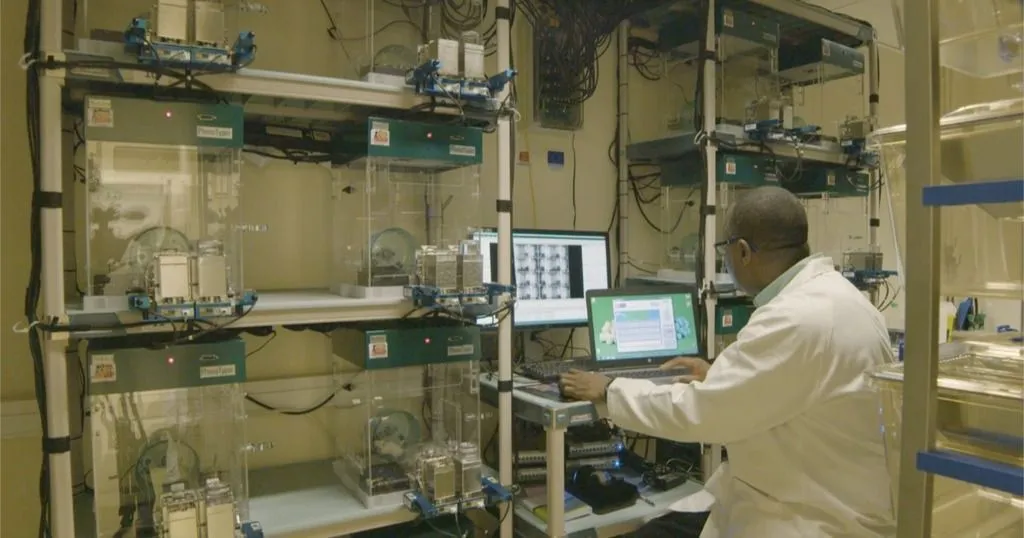Normalization of blood sugar reduces enhanced rewarding effect of smoking
Why are the rewarding effects of nicotine greater in diabetic rats?
Posted by
Published on
Wed 18 Jul. 2018
Topics
| Diabetes | EthoVision XT | Rats | Video Tracking |

When you think of diabetes and tobacco use in the same context, there are some clear similarities between the two – they are both prevalent, and can both be deadly. According to the World Health Organization, in 2014 there were 422 million people worldwide counted as having diabetes, with most of them diagnosed with type 2. And, in 2015, an estimated 1.6 million deaths were directly caused by diabetes. Switching gears to tobacco use, the World Health Organization reports that in 2015, over 1.1 billion people smoked tobacco. In addition, Centers for Disease Control and Prevention reports that tobacco use causes nearly 6 million deaths per year. This number is estimated to increase to 8 million in 2030.
The link between diabetes and smoking
Type 2 diabetes and smoking clearly both cause serious health issues on a global scale. But did you know that they are also linked? In fact, nicotine use increases the risk of type 2 diabetes. It also increases insulin resistance, which can make diabetes worse.
Diabetes type 1 and 2
Diabetic patients have hyperglycemia, or high blood sugar (glucose levels) resulting from a lack of insulin. In Type 1 diabetes, patients have no insulin at all, as the insulin producing cells are destroyed by their own immune system. In the more common type 2 diabetes, patients have too little insulin and are also “insensitive” to insulin; they have a lack of action at the insulin receptors.
Rewarding effects of nicotine
In addition to this link between nicotine and diabetes, animal studies have also pointed to the enhanced rewarding effect of nicotine in animal models of diabetes. If these results could be translated to humans, this would indicate that smoking is even more “enjoyable” for diabetic patients.
Recent research from the Western University of Health Sciences (Pomona, CA, USA) and the University of Texas (El Paso, TX, USA) investigated these rewarding effects of nicotine, and how they are enhanced in rat models of diabetes. In their study, they sought to find the mechanism behind this effect.
STZ Rat model for diabetes
The rat model for diabetes used in this study was created by a streptozotocin (STZ) treatment. The administration of this chemical induces diabetes by destroying insulin producing cells in the pancreas.
Sex-dependent effects
Interestingly, the researchers studied both male and female “diabetic” rats, and the effects of nicotine seem to be sex-dependent: the effects of STZ on blood glucose levels were larger in male rats.
Study design
This study investigated whether the rewarding effects of nicotine in these diabetic rats was caused by the direct effects of insulin or due to excessive blood glucose levels. Rats underwent a conditioned place preference (CPP) procedure to study the rewarding effects of nicotine, while receiving either insulin supplementation or a drug called dapagliflozin to increase blood glucose levels.
Conditioned Place Preference test
The CPP apparatus used in the study was made out of two chambers and a small start box. The flooring and the black and white patterns on the wall were different in each chamber. On the first day of the CPP procedure, each rat was placed in the start box, which closed after it left the box. Then, time spent in the two chambers during a total of 15 minutes was measured using EthoVision XT video tracking. Throughout the next six days, the rat would receive daily nicotine or saline injections and was placed in the chamber they initially did not prefer. On day eight, the same procedure as day one was repeated.
Nicotine conditioning
Nicotine conditioning worked for all male rats, as they preferred the nicotine paired chamber over the other. This effect was even larger in STZ male rats. Insulin and dapagliflozin both decreased this effect.
The effect of STZ differed for males and females, as well as the effect of nicotine on the STZ females compared to males. Female STZ mice did not experience an increased effect from nicotine in comparison to their “non-diabetic” female conspecifics. Researchers suggest that one of the explanations for this is that females are less sensitive to insulin actions in the brain. Nicotine did increase blood glucose levels in all rats.
Mechanism behind the rewarding effects of nicotine
This study provides proof that the enhanced rewarding effects of nicotine in diabetes, at least in rats, can be reduced by the common drugs insulin and dapagliflozin. The latter increases blood glucose levels without altering insulin levels, suggesting that the reduced rewarding effect of nicotine is not mediated by insulin alone.
References
Íbias, J.; O’Dell, L.E.; Nazarian, A. (2018). Insulin dependent and independent normalization of blood glucose levels reduces the enhanced effects of nicotine in a rodent model of diabetes. Brain Behavioural Research, 351, 75-82.
Related Posts
Tracking tadpoles – why video tracking is important in ecotoxicology

How fruit flies find your food (and mates!)

